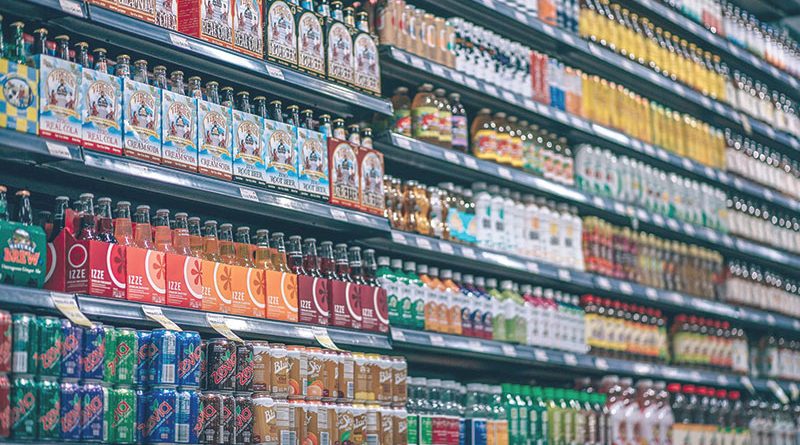The treat is a trick
By Justinne Lou Go, RND
HALLOWEEN may be over but the real horror is here to stay — in our pantry and grocery shelves. A lot of common household and grocery items may seem unsuspecting but these are actually the horrors we deal with every day. And while we get to think that it’s fine to treat ourselves sometimes, those seemingly pristine- and friendly-packaged food and beverage items are wolves in sheep’s clothing. So, don’t let the packaging and false labels fool you. Choose your treats wisely. You wouldn’t want to end up in a health scare, would you?
There are certainly banes and boons to this technological age, probably more banes, in terms of the ultra-processing of food. The main goals food manufacturers have been working on for decades are the extension of food shelf life, retention and even the enhancement of food palatability, to the point of formulating flavor profiles that promote addiction, so consumers would continually buy their products. Of course, business is business. Yes, I’m not kidding. If that doesn’t scare you, I don’t know what does.
Today, let me share just a few of the common ingredients in our food that can send us into a health nightmare if we don’t take enough notice to limit our consumption:
1. The Horrific Sugars: HFCS and Artificial Sweeteners
After fat has been in the dark light for the past several decades, the truth about sugar being the main culprit has finally come into the spotlight as diabetes and cardiovascular diseases skyrocketed to become among the top killers globally despite the “low-fat movement.”
Of particular concern has been high fructose corn syrup (HFCS). This is a type of sugar processed from corn starch. Compared to table sugar, it contains more fructose — either 42% or 55% — and is in a form that is more quickly absorbed into the bloodstream and can overwhelm the liver.
Although further studies are still needed to be done on the long-term effects of this type of sugar, there have been evidences that this particular type of sugar seems to be more harmful than regular table sugar due to its fructose content, which can possibly promote fatty liver if taken in excess.
And for someone who eats a lot of processed products, an excessive intake of this type of sugar is not unlikely as it is found in most processed products such as candies, breakfast cereals, energy drinks, store-bought dressings, canned fruits, sauce and condiments, instant coffee, and most popularly in softdrinks. Studies have not yet concluded whether there really is a difference in the effect of table sugar versus HFCS to our cardiovascular health, but they do consistently say that added sugars are major factors in today’s obesity epidemic.
Artificial sweeteners are another horror story. Even with FDA approval, these non-nutritive (meaning, calorie-less) sweeteners can actually make diabetes and obesity worse by promoting cravings and even headaches and mood swings. If you have to use sweeteners, raw honey is the best choice, along with green leaf stevia, coconut sugar, grade B maple syrup, blackstrap molasses, and dates. However, since these are still sugars, observe a moderate intake at all times.
2. Fearsome Fats: Trans Fats and Refined Vegetable Oils
We may still be using the same ingredients as our ancestors, but the way these are being processed in our modern age is the issue now. The worst processing method being done on supposedly healthy fats from plant sources is the hydrogenation of vegetable oils.
Hydrogen is added to these oils to solidify them and are then treated with extremely high heat, ranging from 500 to 1,000 degrees Celsius; all for the sake of shelf stability and unfortunately, at the expense of our heart and metabolic health.
Trans fats are artificial fats that lower good cholesterol (HDL) and increase bad cholesterol (LDL) and have been responsible for up to 50,000 premature heart attach deaths in a year. So, before believing a label that says “zero trans fat,” always check the ingredients list for hydrogenated or partially hydrogenated oil.
3. Menacing Meat Glue (Transglutaminase)
Eating too much meat can cause indigestion, but it may also be the kind of meat you’re eating. Think chicken nuggets, synthetic crab meat sticks (kani), fastfood chicken fillets, fastfood fish fillets, burger steaks, fish balls.
Commercially processed meat are often created with the use of a “meat glue” called transglutaminase, which is a special enzyme that holds proteins together, hence the lay name. It serves to put together smaller cuts of meat into larger servings.
A “young” food additive, having been approved by FDA only in 1998, this food additive is known to trigger leaky gut and a host of digestion issues. So, you might want to think twice next time you think of having that California maki or chicken nugget.
The lesson here is really to avoid artificial and added sugars, choose more whole, real, unprocessed food as much as possible, and to double-check labels by reading the ingredients list at all times. Remember, the longer the shelf life, the shorter your life. Don’t be tricked by the “treat.”
babe for food
justinnego@gmail.com




